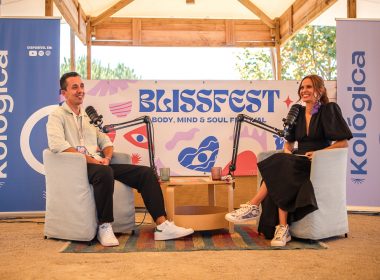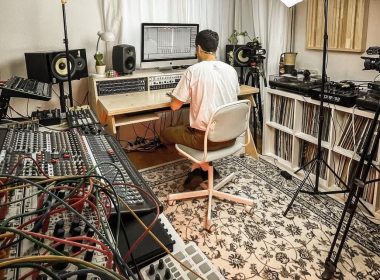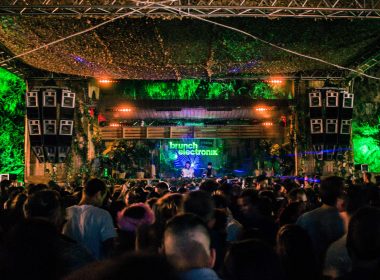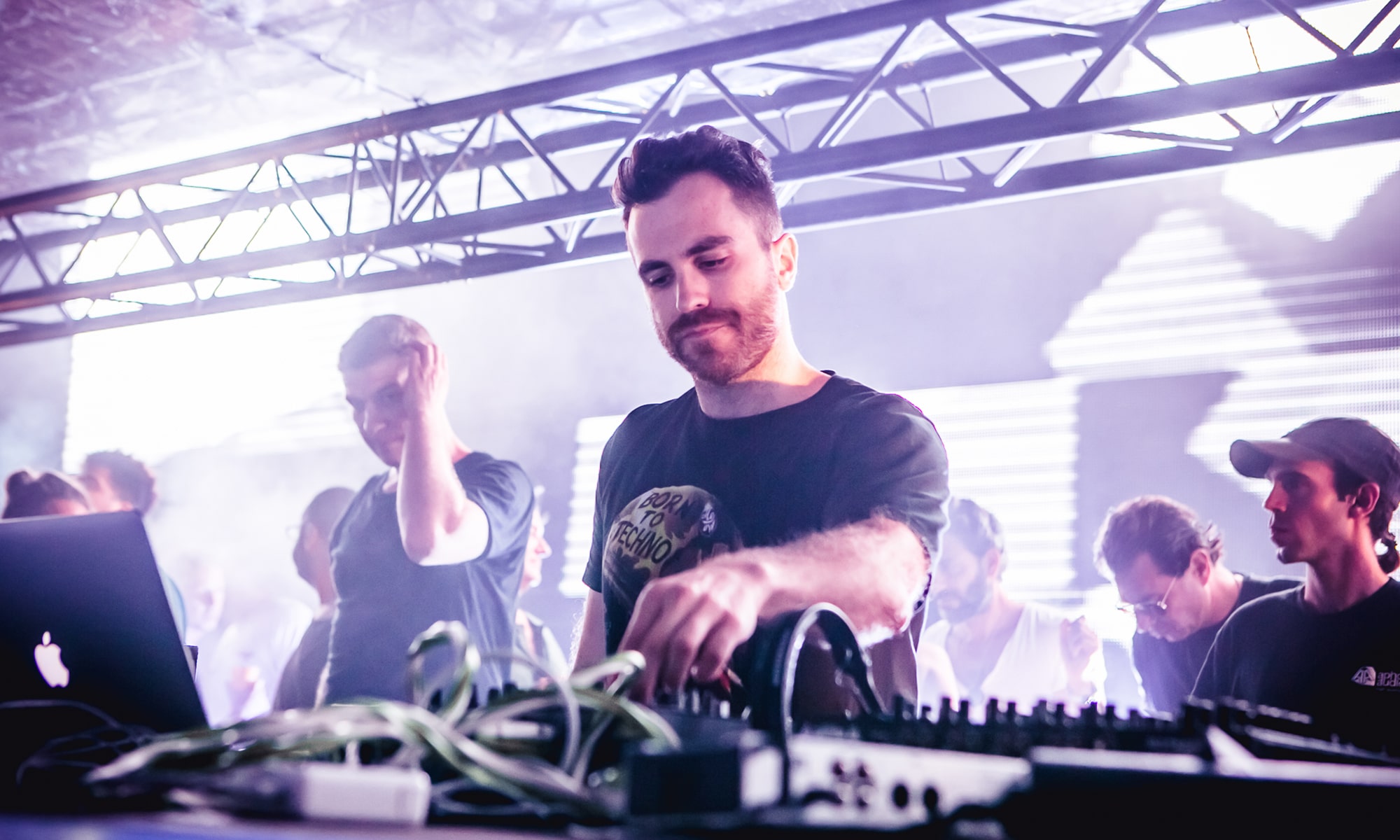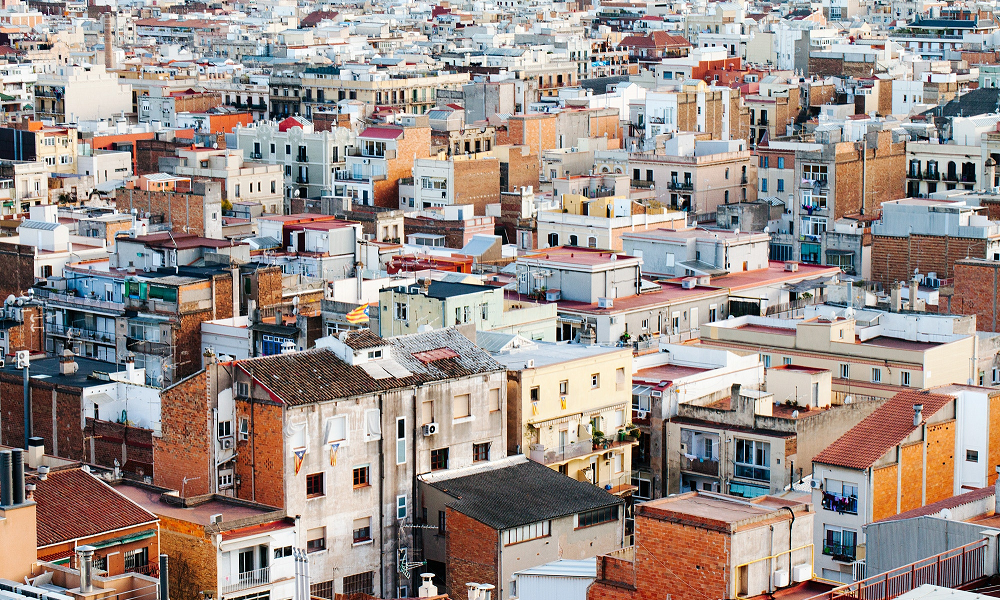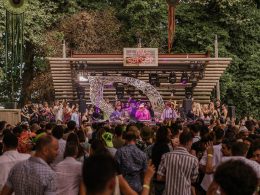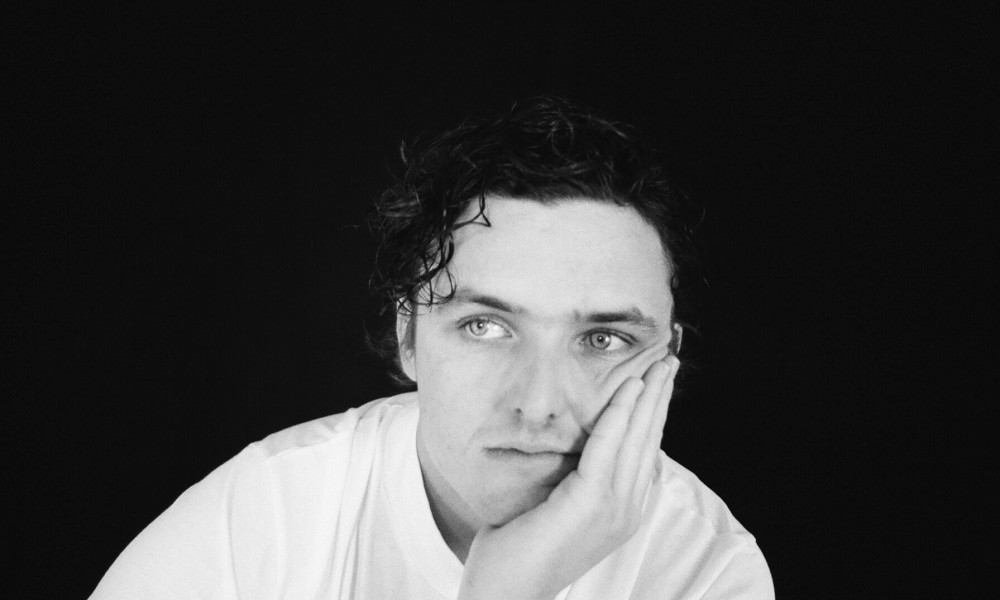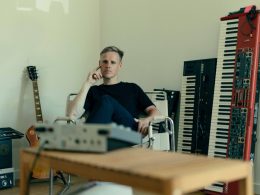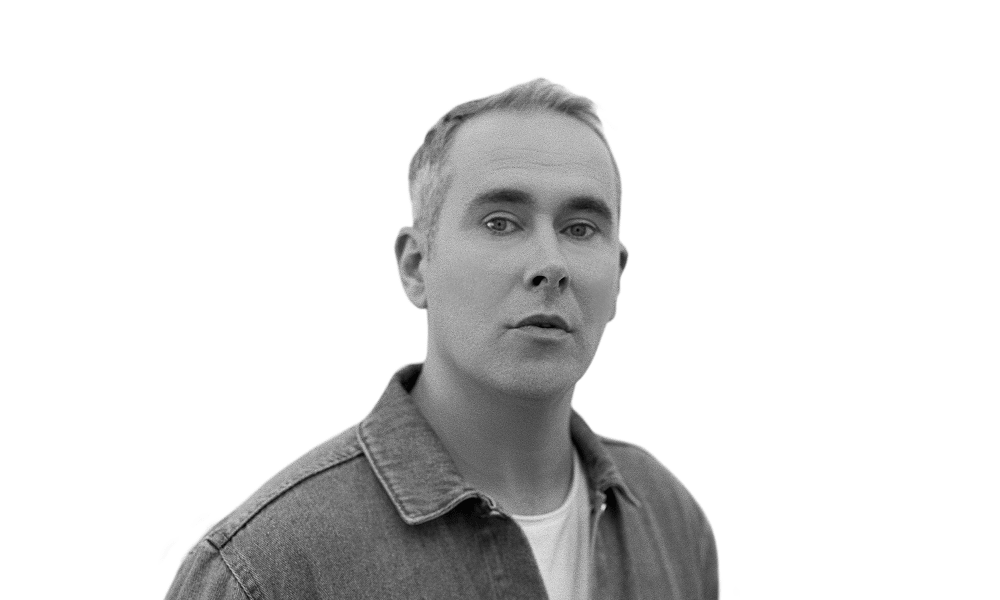Iván Ramos, better known as Coyu, was born in Barcelona in 1985 when smartphones and social networks didn’t yet exist. At that time, the vast majority of the population didn’t know about the advantages or reasons that could lead to veganism. There was no talk of climate change and musical genres such as tech-house or techno barely resounded in the distance. Despite all this, Coyu wanted to devote himself to music. He started out as a journalist, then moved on to promotion and finally found his place in the production studio and DJ booths. 34 years later, Coyu already has 3 appearances in Sónar, multiple visits to the best scenes in the world, 3 seasons with his own party in Ibiza, a reference label and a latent leadership in vegan and pro-animal movements. Coyu is a friendly and humble guy. And, above all, a very interesting man.
You created Suara in 2008 when you were only 23 years old. Was it your first big step or were there previous ones?
Actually, Suara was born as a sublabel, as my main label was Atypical Farm, created a year earlier, in 2007. That was also an important moment. Suara grew so much that I had to let Atypical Farm die and dedicate myself exclusively to Suara. Before that, I had worked as a music journalist and had started training as a DJ and producer. It was always clear to me that this was my industry, so I got involved from a young age: journalist, radio broadcaster, programmer, label founder… and finally, DJ.
You produced your first big hit, “El Baile Alemán”, during a visit to your friend Edu Imbernon in Berlin. However, you have always been based in Barcelona. Is it one of the best cities to live in while being dedicated to electronic music?
Yes, Barcelona is the best city in Spain to dedicate to this and also one of the best in Europe. Its club scene is very well established and the best DJs in the world are always coming here. Even when it comes to record stores we’re up there. Having festivals like Sónar also helps a lot, as it has opened doors for us, the people from Barcelona when it comes to listening to music that you don’t hear for the rest of the year.
You’re talking about Sónar. We’ve just celebrated its 26th edition. Previously, you said that for you it is “the festival”. What makes it special?
For those of us from Barcelona, Sónar is always very special. It was my first festival. It was 2004 and I was only 18. There, I saw for the first time legends like Massive Attack, Miss Kittin or Carl Cox. And I thought, like many, “someday I’d like to perform here”. Over the years, I did it – I’ve performed 3 times – being one of the local artists who has performed the most at the festival. Sónar also has an educational component that few have, especially during the day. It supports minority music, from remote countries and small scenes, and gives them a chance in front of an immense audience. There are many things that make it special.
From a DJ’s perspective, is Sónar the most important festival in the world or is it from Barcelona’s perspective that we see it in a distorted way?
It’s one of the best, especially if you’re a DJ. It’s where I’m most excited about acting. Everything that happens around it also makes it very special. People from outside are also more attracted to OFF Week, a fact that others like Awakenings or Time Warp don’t have. People from the scene can come 5 or 6 days to Barcelona to enjoy the city. It’s one of the relevant points in the agenda of any DJ or any worker on the scene, just as the ADE is or the Music Winter Conference of Miami was. What makes Sónar different from ADE is that people come less to the business. It happens in June, after 8 months of cold, grey skies in Europe, and people come for their first summer days in a festive, happy spirit.
You played Sónar in 2012 when your sound still embraced a tech-house approach on clubbing. How do you remember that session?
I acted in 2012, 2013 and 2016. I used to play tech-house, but that session had little of that style. I’ve never had a sound of my own. When I did my parties at Apolo, I played much darker music, more techno and electronica, because the audience demanded it. The same thing happened in Sónar. I knew that people would need a festival sound, a big-room sound. I saw who was performing before and after and I gave that DJ service between shows. After me, Richie Hawtin came as a headliner. So, I did a lot of electronica, a lot of techno and, yes, also some tech-house. But I can play everything: disco, progressive house… Everything depends on the space and the moment.
Your style – and that of the whole label – has changed a lot since then. At the time you explained that tech-house was too much market-oriented and that you no longer felt comfortable in that field. Do you still see it all the same? Are you happier now, closer to techno?
Yeah. A few years ago, I wouldn’t have imagined playing 138 bpm. Now, I feel more mature. I feel like the audience knows me and knows that I can accelerate the dancefloor depending on the situation. I can play very dark music or more groovy, more melodic or rougher. It depends on the moment. As a producer, I’m more focused on techno sound, trying to balance what’s underground and what the market demands.
At the time you feared that this would lead to worse results in terms of visibility, as it is a more underground genre with less market. What is the balance 2/3 years later?
We made the change in the summer of 2016. We were reforming the Suara Store and took the opportunity to reform the label as well. At that time, we were the number 1 tech-house label, but I got tired of the genre. Over the years, I’m aware that we’ve had losses in the market, but I feel more confident as an artist. Now, I can take my career where I really want to go. Before, I felt that it was the scene or the audience that was taking me. Now, I’m the one who takes my fans. If you follow me, fantastic. If not, see you later. Before, I had that fear. Before, I was afraid to play something people didn’t like. Not now. Now, I try to adapt, but with some limits. Before, there were no limits. And I got to do things I didn’t like. Now, I do everything convinced.
Let’s talk about Feline, a parallel label focused on local talent and the vinyl format. Are there differences between Feline and Suara in terms of style?
Feline was born to give opportunities to local artists who, although they are already known, still don’t have that support. However, after the 5th reference, which was from ORBE, we decided to close. Everything we have tried to help the local scene has not been enough. The project has lasted 4 years. These 5 vinyl references remain in the memory, also as a tribute to the format with which I was formed.
You’ve always defended the use of vinyl and, in fact, I think you like to use it from time to time. Can faculties be lost if its use is abandoned or they are remembered for life?
I use it from time to time and yes, faculties are lost. A few months ago, I organized an all night long party at Moog to celebrate my 15 years as a DJ. Half of the session was vinyl, and if you listen to it, there are very forced mixes, which are hard to digest. I don’t even use CDJs normally. I use to play with Traktor and laptop.
One of the most controversial dates in your career was that set at last year’s Miami Ultra Music, in which you appeared with a mixer, an X1 and a laptop with Traktor. Did you understand the critics?
As I said, I always play with a computer, an X1 and a mixer. For some time now, I have incorporated the RMX to apply effects. My set-up is very simple. It’s the set-up with which I can contribute the most as a DJ to a party. Because I don’t have a lot of machinery, it doesn’t mean that I can’t give my best. My set-up is minimalist, but I can offer a lot. There are very hard people with this topic of playing without CDJs. Nowadays, playing with CDJs is also very simple. If they’re hard demanding vinyl, I still understand. But that, in 2019, there are still people who question whether a DJ plays with CDJ or Traktor is unbelievable. Everyone has the freedom to create what they want. The important thing is what sounds through the machines and not the machines themselves.
Could it be that everything that a DJ does on a stage is, nowadays, too exposed and over-analyzed? Can that make the artist demand more of himself?
It doesn’t help you to increase demands on yourself at all. Self-demand is put on oneself according to where one acts. You have to know how to take advantage of social networks. It doesn’t add much to me, but it’s because of my personality. I’m not fluent in front of the cameras and that’s hard for me. I do it, but because I feel obliged and because I like to interact with the audience. Nowadays, people value you more for what you post than for your music or your talent as a DJ. Either you get into the network machine, or you don’t seem to be in the scene. If you don’t post your gigs, you don’t seem to have gigs. I get tired of posting out of necessity. Either you do it, or you’re fucked. It’s worth more than your last production.
At the time, Suara had its own party in Ibiza. Current status?
It’s hard to get back to that. That was in 2014, 2015 and 2017, with a weekly party in Ibiza. It’s hard to come back because Ibiza has changed a lot and it’s going to keep changing – and it seems to be for the worse. A small brand like ours no longer has space there. Now they take the big brands, the big DJs, the Top-50. Either you’re top-50, or you don’t sell and the promoters in Ibiza want to sell tickets more than anywhere else in the world because the competition there is the fiercest in the world. In Ibiza, there is a lot of negative pressure as an artist, too. You work badly and they don’t make it easy for you. The people with whom you should work side by side for the good of the party are the same people who end up making it impossible for the party to go well. Our experiences are not the most positive there, although we learned a lot. Ibiza is like military service. You go there as a child and come back having become a man. It’s a jungle, save yourself. You learn a lot.
A producer, a selector, a DJ and an owner of a record label, a clothing store and a cat shelter foundation. Do your days have more than 24 hours or is there a secret?
The secret is to invest a lot of hours. Little rest, trying to make good use of all the hours and know how to delegate to the people around me – I’ve been learning that over the years, you don’t always have to be in all the decision making. Obviously, I don’t put all the hours I’d like into the studio, but it’s a handicap I live with.
What identifies you with cats? Why them and not others?
I met my girlfriend 15 years ago. She introduced me to the world of cats and taught me how to interact with them. I fell in love with. It is the type of animal that most closely resembles my personality. I feel very close to their way of thinking or acting. I love dogs too, but I see few differences between dogs. On the other hand, I see many among cats. If you kick a cat, he’ll remember his whole life, just like a person. He’ll be able to forgive you but never forget it. That complexity is what attracts me the most from them. They are wonderful beings.
The Suara Foundation’s reception in the industry was super positive from the very first day.
Yes! It’s normal… Who doesn’t like cats? People see everything we do for them and support us. We name cats by DJ names and that’s also made a lot of artists get involved. Amelie Lens, The Black Madonna or Patrice Bäumel are some of those who have helped us to cure their namesake cats, for example. Many other DJs have stopped by the Cat House to see us. It’s very nice.
In your rider, you always demand help for cats…
I don’t demand it, but yes, in my rider I always ask 10kg of cat food to be included. So, that promoter can go the next day to the nearest association to deliver the food. It’s a detail, but I do it to make people aware and see that DJs have certain demands, but they can also be used for good purposes.
What perhaps many don’t know is that cats are kind of free at the Cat House and anyone can come and meet them. Is there a veterinarian or an expert in animal behaviour who can take care of all of this?
We have 3 resident cats: Maceo, Dixon and Bagheera. They live here from day one and will not be given up for adoption. They help the newcomers integrate when they walk from the street to the Cat House. My girlfriend is a feline veterinarian, as is Mariana, the caretaker. If Suara Foundation is what it is, it’s thanks to them.
Finally, as an animalist, I wanted to ask you: what do you think about Cecilio G’s entry on horseback in this last Sónar?
I didn’t know and I found out from my girlfriend. I, as a vegan and animalist, am against the use of animals for food, leisure or any kind of act that doesn’t involve a natural habitat for the animal. I cannot be in favour of what this artist did.
Who do you see more guilty? Sónar hasn’t made a statement yet…
As for Sónar, I understand that something like this could sell, as it sold in that day when David Guetta entered Pacha also on horseback. Sónar doesn’t need it, but we still have a long way to go in the field of animal awareness. There will be more and more respect for animals. We just need more time. I started being a vegan a year and a half ago, so I can’t afford to evangelize everyone either. An artist who sings well or acts well doesn’t need horses.
(Cover Image: © Phlame)




